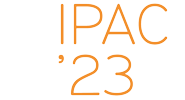Speaker
Description
After the discovery of the Higgs boson at the LHC, particle physics community is exploring and proposing next accelerators, to address the remaining open questions on the underlying mechanisms and constituents of the present universe. One of the studied possibilities is FCC (Future Circular Collider), a 100-km-long collider at CERN. The feasibility study of this future proposed accelerator implies the definition of tolerances on magnets imperfections and of the strategies of correction in order to guarantee the target performances of the High Energy Booster ring. The efficiency of the correction scheme, used to control the orbit, directly bounds the corrector needs and magnet tolerances. Analytic formulae give a first estimation of the average rms value of the required linear correctors’ strengths and of the allowed magnets misalignments and field quality along the entire ring. The distribution of the correctors along the ring is simulated in order to verify the quality of the residual orbit after the proposed correction strategy and compared with the analytical predictions. First specifications of the orbit correctors strength and tolerances for the alignment of the main elements of the ring are presented. The limits of the studied correction scheme and method are also discussed.
Funding Agency
This work was supported by the European Union’s Horizon 2020 Research and Innovation
programme under grant no. 951754 (FCCIS).
| I have read and accept the Privacy Policy Statement | Yes |
|---|
